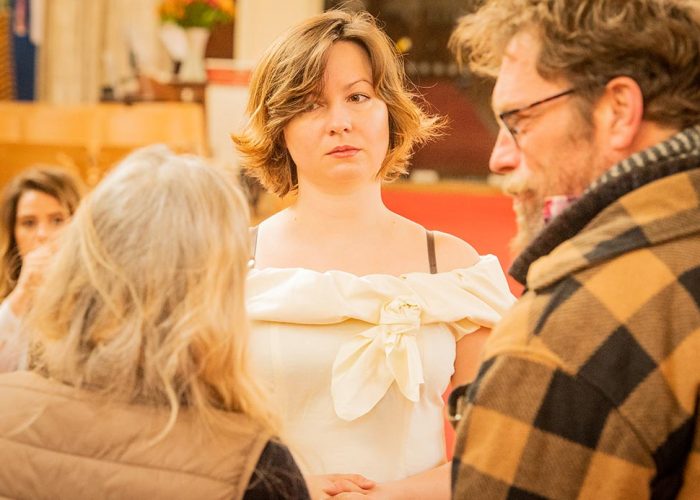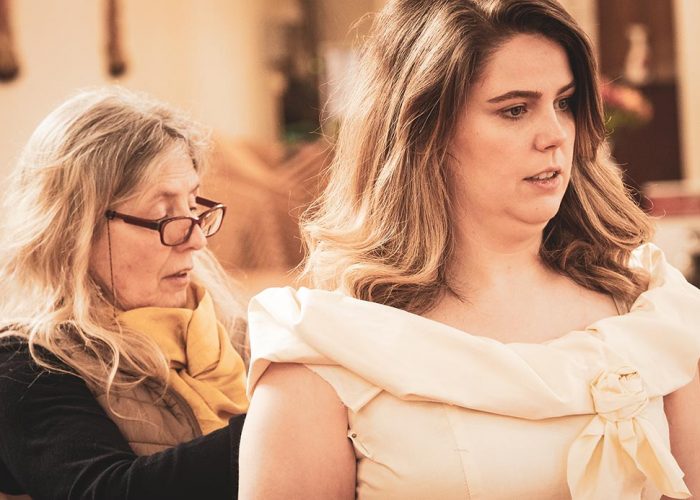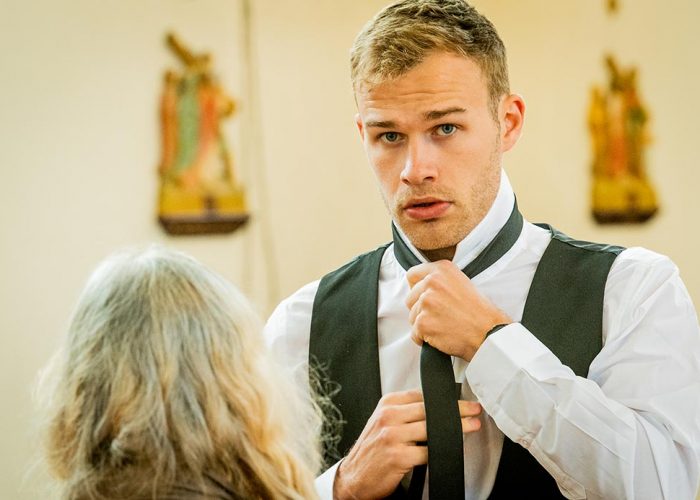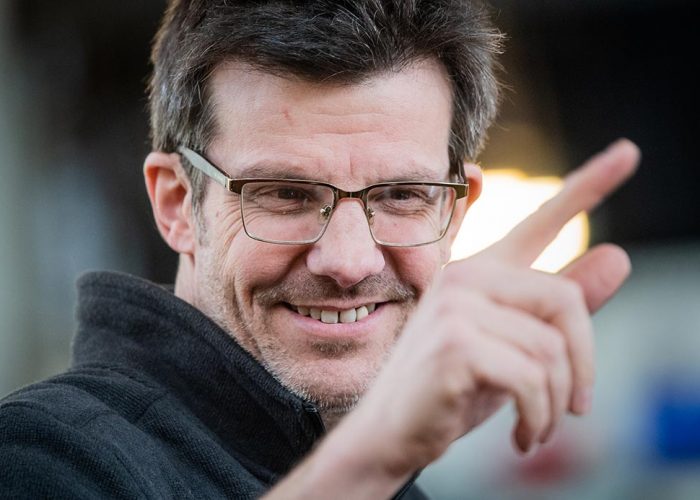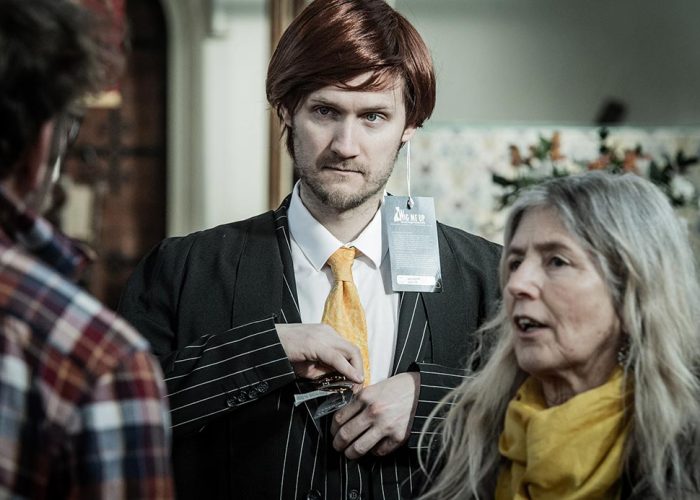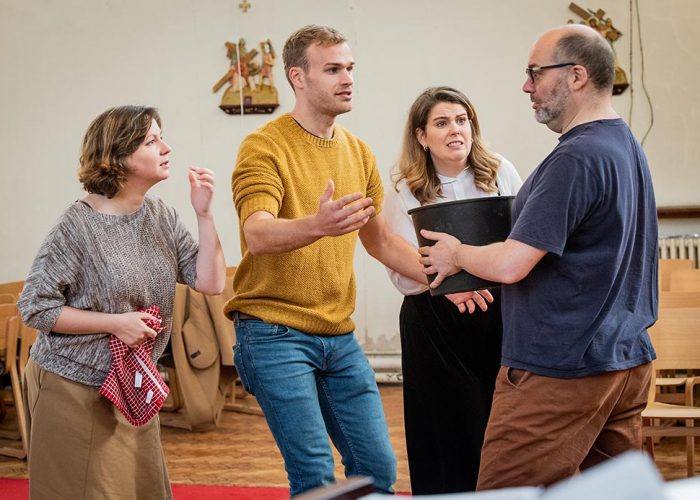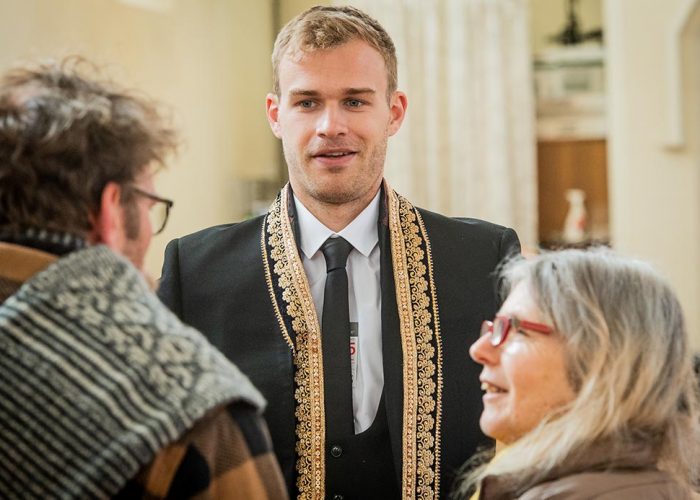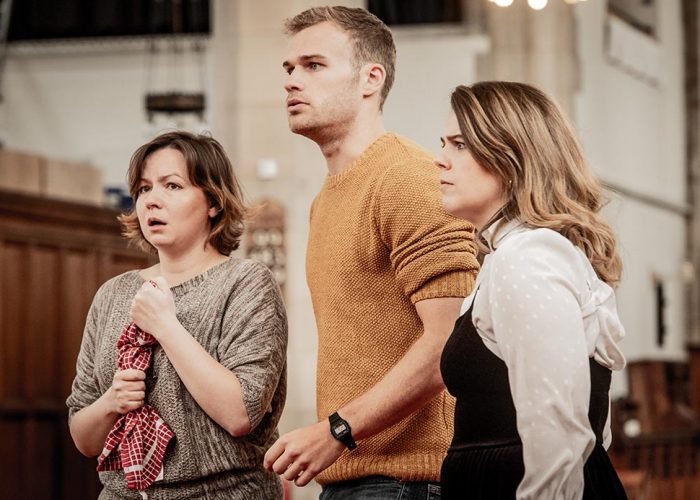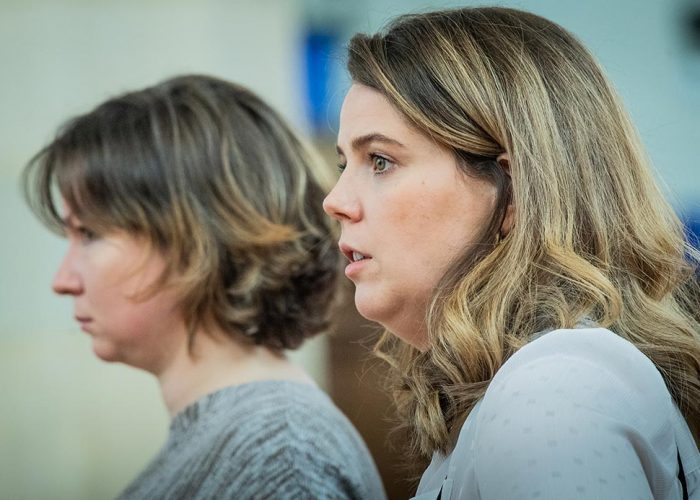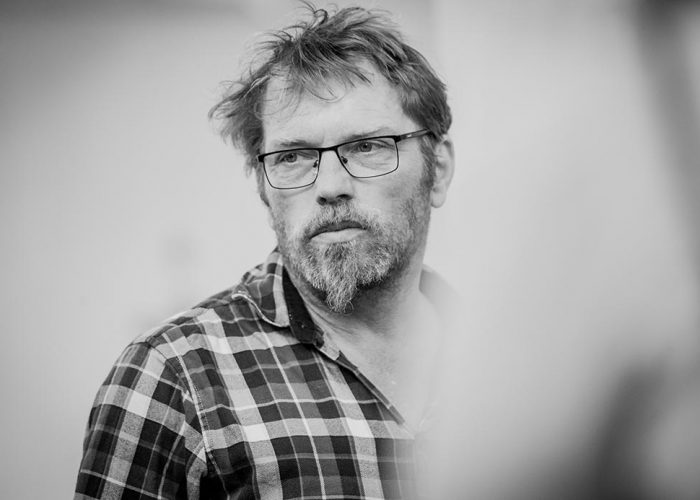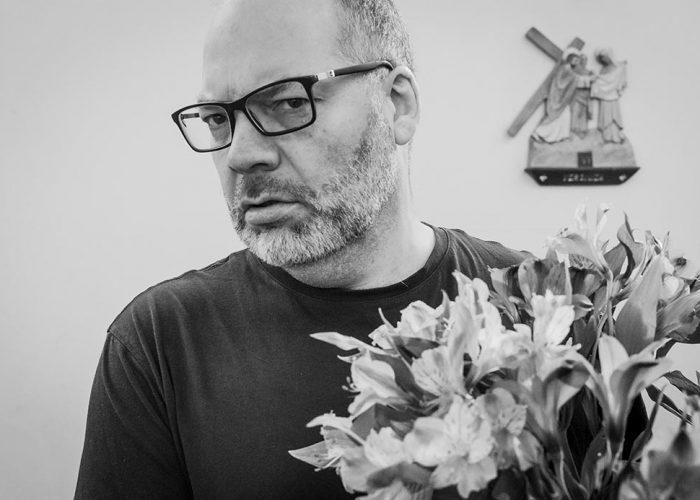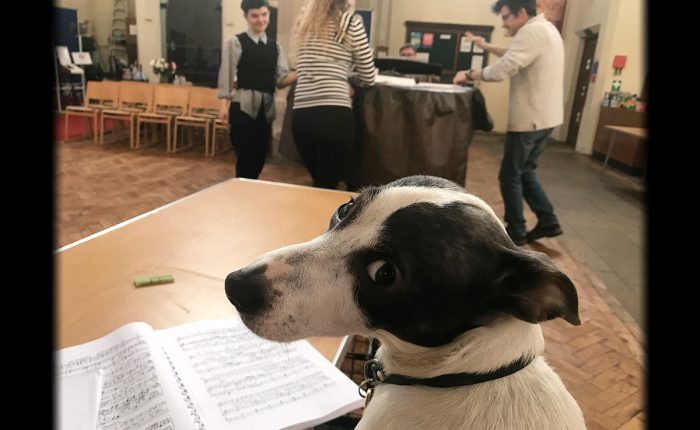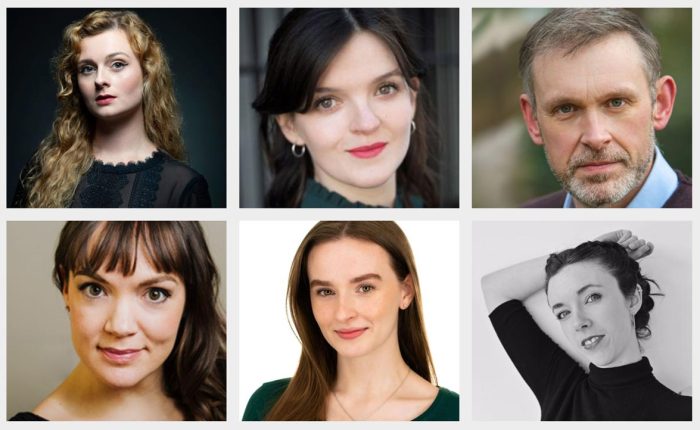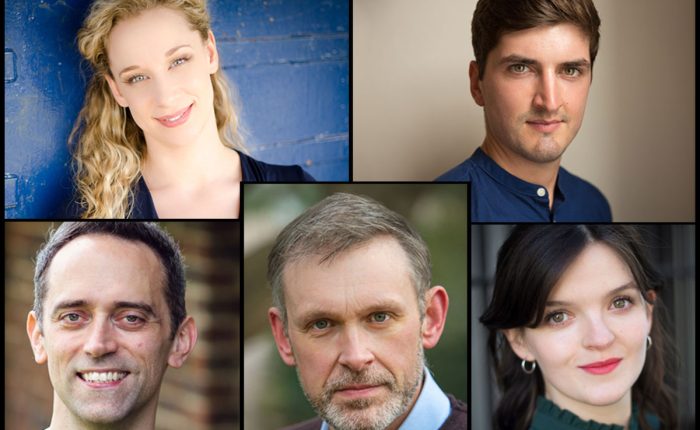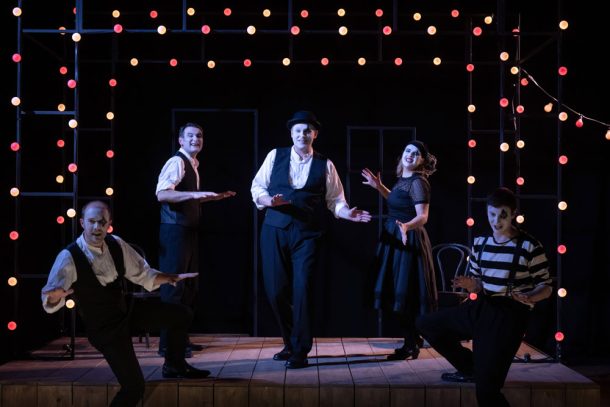One of the joys of performing live opera is that every night is different, each theatre, audience or acoustic adds its own twist to the production and it’s never the same show twice.
With an opera like The Marriage of Figaro, one of the best-known works by one of the best-known composers, it’s vital to combine both a fresh approach and the ability to remain faithful to the original.
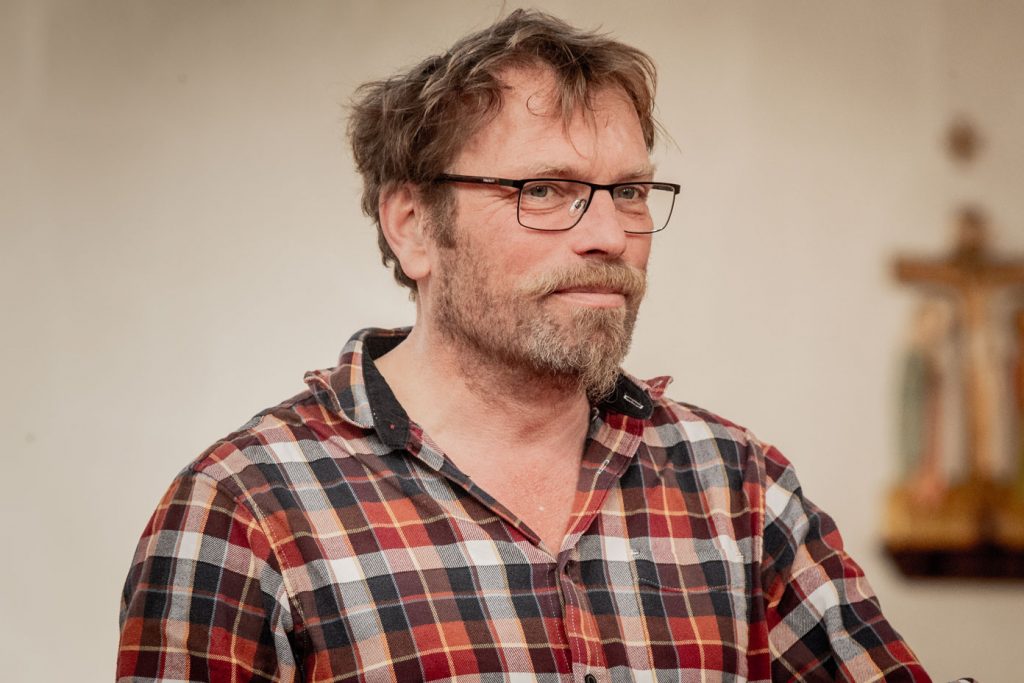
For our Artistic Director, Richard Studer, the key to that is the story. As he explained: “The plot is very complex so story telling is central – but basically the Count wants to bed Susanna and Figaro wants none of it…it is a farce full of mistaken identity and disguise including hiding in a shrubbery.
We’ve stayed as faithful to the original Mozart version as we can with only two minor cuts which most companies would make and a few tweaks to the recitative (spoken singing) but we’ve not needed to make allowances for our young performers, everyone is doing fantastically.”
Our production is in partnership with the Wales International Academy of Voice, six of whose performers join us on tour as full members of the company. As our Countess, Jana Holesworth explained : “ It’s a great opera for young voices and the young performers bring a real freshness to the production, it’s great to be performing alongside some really experienced singers as well as singers just starting to make their way.”
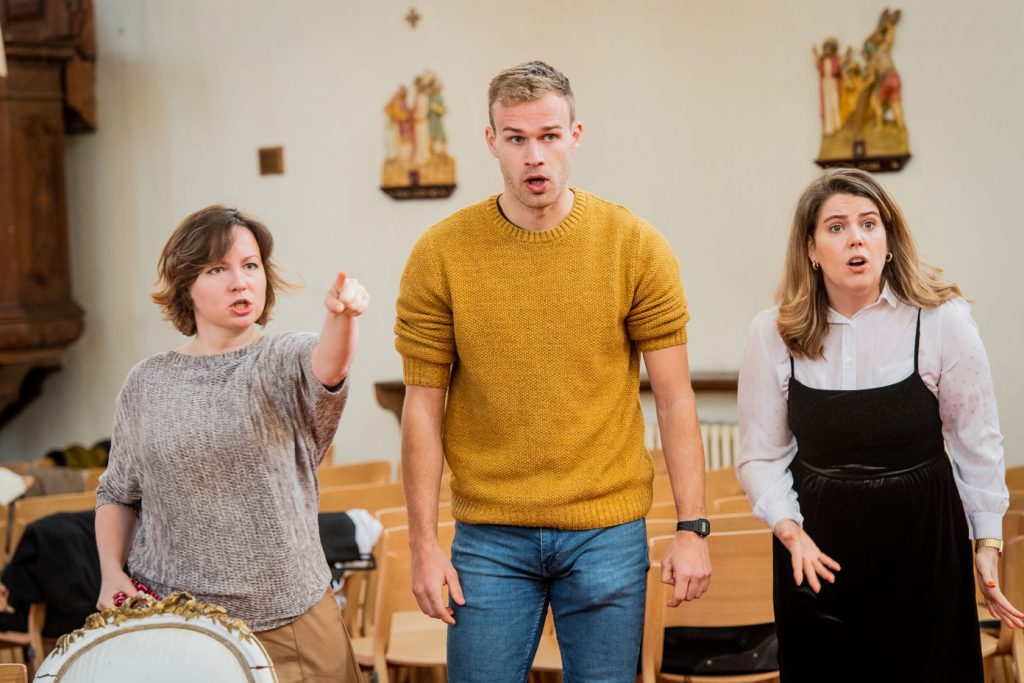
This year’s Spring season has seen a plethora of performances of Figaro, with WNO’s classic production joined by Opera North and English National Opera as well as our own. But each Director will bring their own perspective to the story and characters.
As our Susanna, Galina Averina, told us: “Susanna is a tricky one, in traditional versions of the opera she is the Countess’ servant but in ours she is more like her personal assistant and helper. It’s a struggle to combine her cleverness with the lightness of the character and soubrette …she’s a witty and playful young woman”
Harry Thatcher, making his role debut as Figaro with MWO having previously performed the role of Count Almaviva, has been enjoying his new character’s playful nature and the focus on storytelling in our production: “This is a very modern production in some ways, mixing a more traditional backdrop with modern costumes. I recently performed in a version of Figaro at the Royal College of Music which was full of props and this is more stripped back, we are really trying to explore the relationships between the characters.
“Even if they’ve seen it many times before, people should definitely come along to see the show – they’ll have fun but also a very basic (in a good way) version of Figaro…naturally presented and easy for the audience to understand.”
Galina added: “In some ways it’s harder with fewer props, you really need to be able to show the relationships between the characters with just a glance or a reaction, it requires strong performances. It’s also a great experience for young singers, we’re working with performers and alumni from the Wales International Academy of Voice for example – our Cherubino graduated last year and our Barbarina is still a student.”
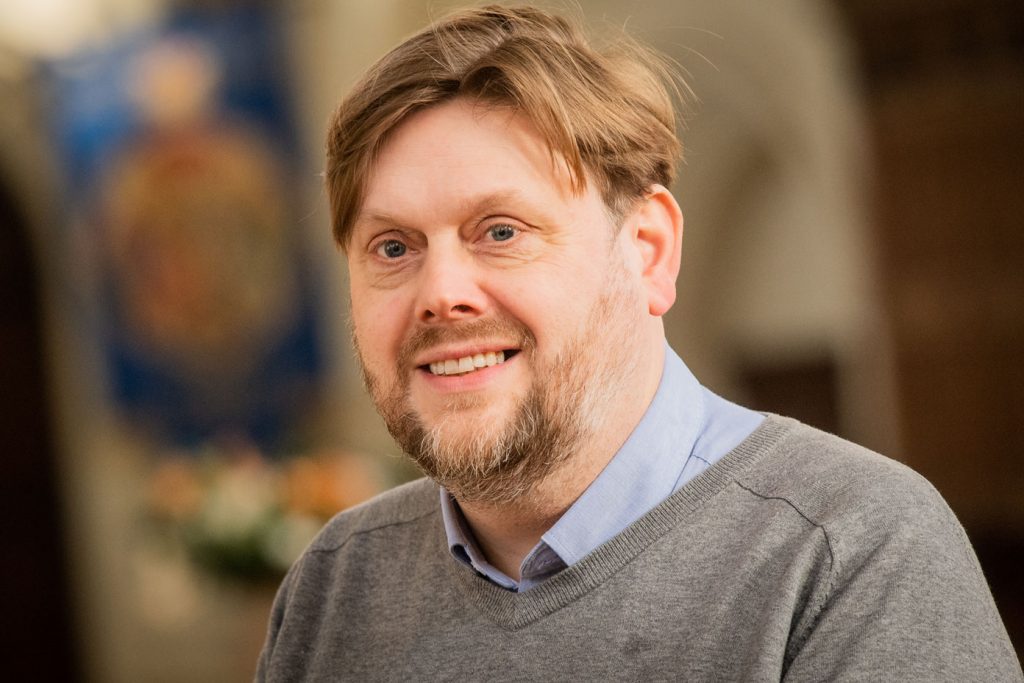
The other couple whose lives are at the centre of the production, and whose stories will resonate with audiences, is our Count and Countess. In a week when Harvey Weinstein has hit the headlines our Count, Benjamin Bevan’s performance has real resonance: He told us:
“The Count is very much the Lord of the Manor and the lord of his own little world…and he’s willing to abuse that power over pretty young girls that work for him. There are three young women in our production who he has had or is having affairs with and I don’t think they’re doing it out of choice. It’s very pertinent in view of things like the case of Harvey Weinstein – money talks and power certainly talks.”
His Countess, Jana Holesworth, may be the Lady of the Manor but her suffering brings a real pathos to the performance and her performance of the Countess’ aria Dove Sono won’t leave a dry eye in the house: “The Countess, the wife of the Count and quite a scorned wife. She has been married for a little while now and is well aware her husband is a philanderer and quite abusive. She’s trying to regain a little bit of her dignity in the marriage.”
But for all the twists and turns, overall the opera’s a farce, and however long we believe it will reign for, peace does reign in the finale. Love triumphs against the odds and the production is filled with Mozart’s beautiful, and memorable melodies.
We asked our Director, Richard Studer, to sum up the opera in four words – he chose wit, passion, pathos and farce (and of course storytelling). That’ll cover it!

